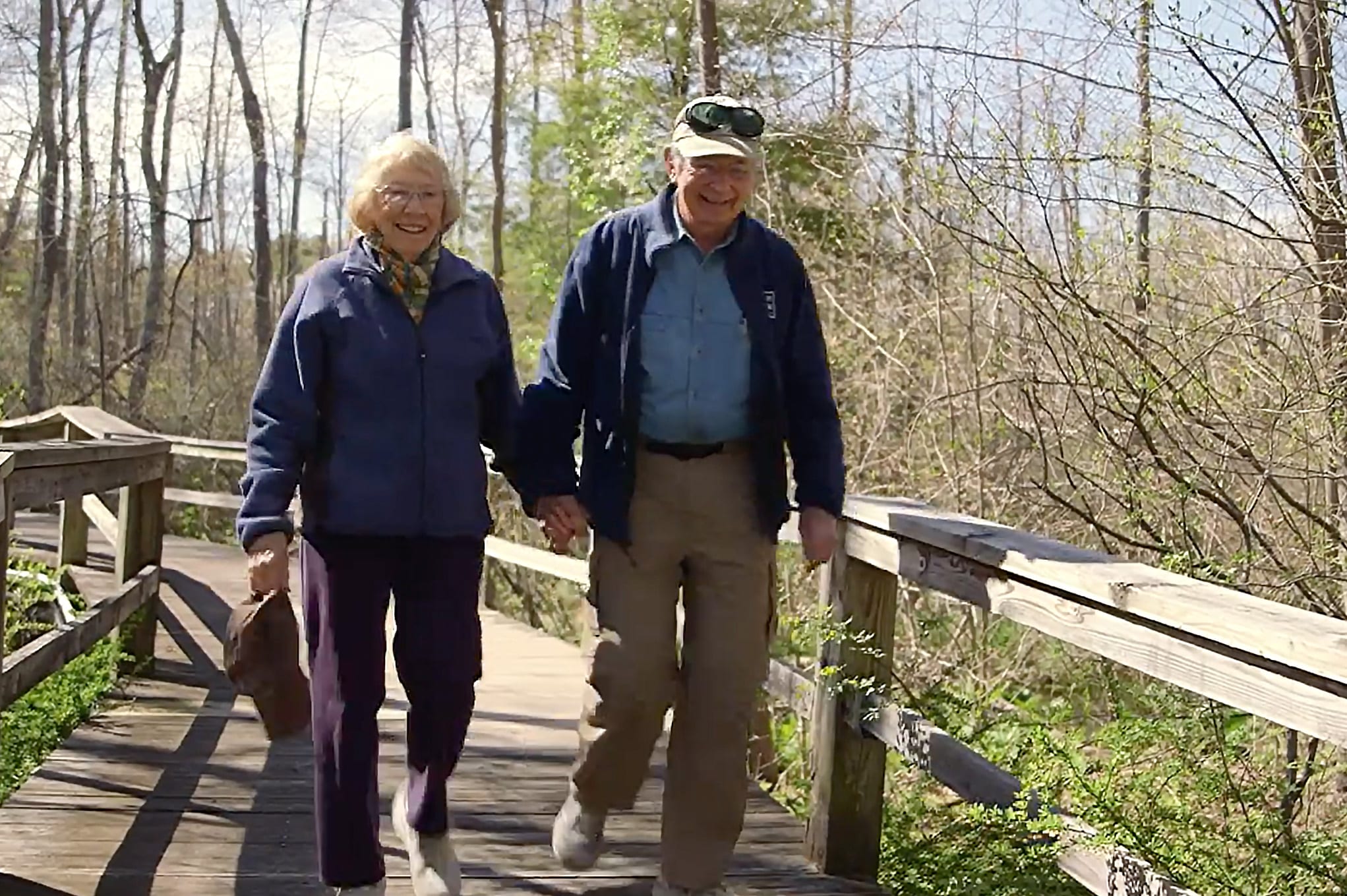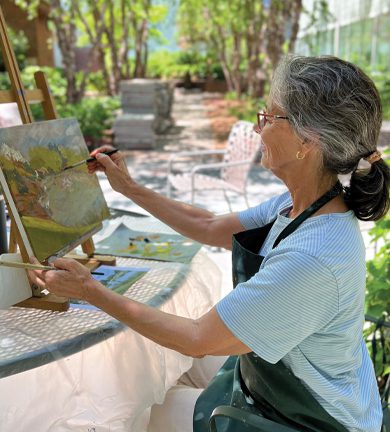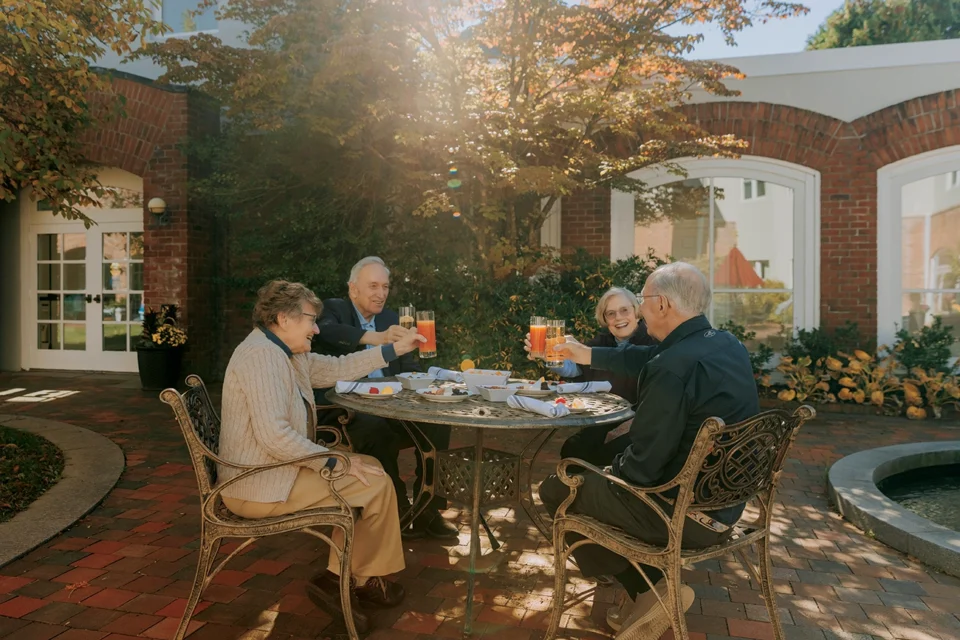May marks Mental Health Awareness Month, a time to recognize the importance of emotional and psychological well-being for individuals of all ages. For older adults in particular, nurturing strong connections and finding meaningful activities can foster a positive outlook and a sense of purpose.
While physical health often takes center stage, mental wellness deserves equal focus. Stress, anxiety, and depression do not discriminate based on age. By recognizing the unique factors influencing older adults — such as isolation, chronic conditions, and financial worries — loved ones and communities can bolster healthy aging and empower adults to lead fulfilling lives.
In this article, we’ll cover the signs of mental health challenges, share practical ways to strengthen mental wellness, highlight the value of supportive communities, and illustrate how active adults can flourish while maintaining their independence.
Recognizing Indicators of Mental Health Challenges
Mental health concerns can present differently as we age. Be alert for shifts in behavior, mood, or appearance. Some individuals might become withdrawn or have difficulty remembering routine tasks.
Key changes to note include:
- Persistent low energy or sadness
- Noticeable differences in appetite or sleep
- Reduced interest in hobbies or social gatherings
- Confusion or trouble focusing
Honest conversations about emotional health can ease stigma and encourage timely support. When these discussions happen, people often feel more comfortable seeking professional care or reaching out to peers.
Practical Ways to Strengthen Mental Wellness
Daily activities that blend physical movement, social interaction, and mental stimulation significantly enhance mental health. These strategies can help:
- Gentle exercise: Activities such as tai chi, walking, or light stretching boost circulation and release mood-lifting endorphins.
- Creative outlets: Whether painting, knitting, or playing a musical instrument, creative endeavors stimulate the mind and spark joy.
- Mindful meditation: Relaxation techniques and intentional breathing can soothe tension and help manage anxiety.
- Lifelong learning: Studying a new language or taking cooking lessons can sharpen cognitive skills and increase confidence.
- Good sleep hygiene: Sufficient sleep is just as critical. Adopting a stable bedtime routine and curbing evening caffeine intake can help regulate sleep cycles.
Fostering Strong Community Connections
Involvement in social activities outside the home provides a sense of connection and purpose. Joining local groups, pursuing volunteer work, or even hosting casual gatherings keeps loved ones engaged and positive.
Community centers and neighborhood committees frequently organize events that cater to diverse interests. Embracing these opportunities can minimize feelings of isolation and contribute to emotional balance.
The Importance of Family Involvement
Family support can serve as a lifeline during challenging times. Consistent phone calls, visits, and online chats help maintain a sense of belonging. Younger relatives benefit from the life experiences of their family members, and everyone learns from sharing perspectives.
If family members detect changes in daily routines or emotional states, empathic conversations and thoughtful care can make a difference. Encouraging checkups and mental health evaluations can uncover potential problems before they worsen.
Maintaining Independence While Accepting Help
Many active adults thrive on independence, but it’s equally important to welcome assistance when needed. Balancing autonomy and support helps reduce stress and potential health risks. Simple measures such as occasional help with preparing meals or running errands can bolster one’s ability to remain self-reliant in other areas.
Flourish in an Environment That Values Well-Being
A supportive home environment can strengthen mental wellness over time. Activities that promote social ties and healthy habits empower people to lead fulfilling lives. Regardless of age, every day presents chances for personal development.
For those seeking an atmosphere that prioritizes mental and physical well-being, Duncaster provides a warm, inviting community that helps our residents find fulfillment and happiness during this meaningful phase of life.
Explore independent living at Duncaster today!
Duncaster is Hartford County’s premier nonprofit Life Plan community. Here on our 94-acre campus, you can enjoy an active lifestyle filled with friendship, art, culture, education, and wellness — plus exceptional service from our staff. Adjacent to LaSalette Open Space and its miles of lovely scenic walking trails, our community offers relaxed country living only minutes away from exciting dining and cultural experiences in and around Bloomfield. Learn more about our community or schedule a tour today to see why doctors, educators, entrepreneurs, musicians, and many others call Duncaster home.






